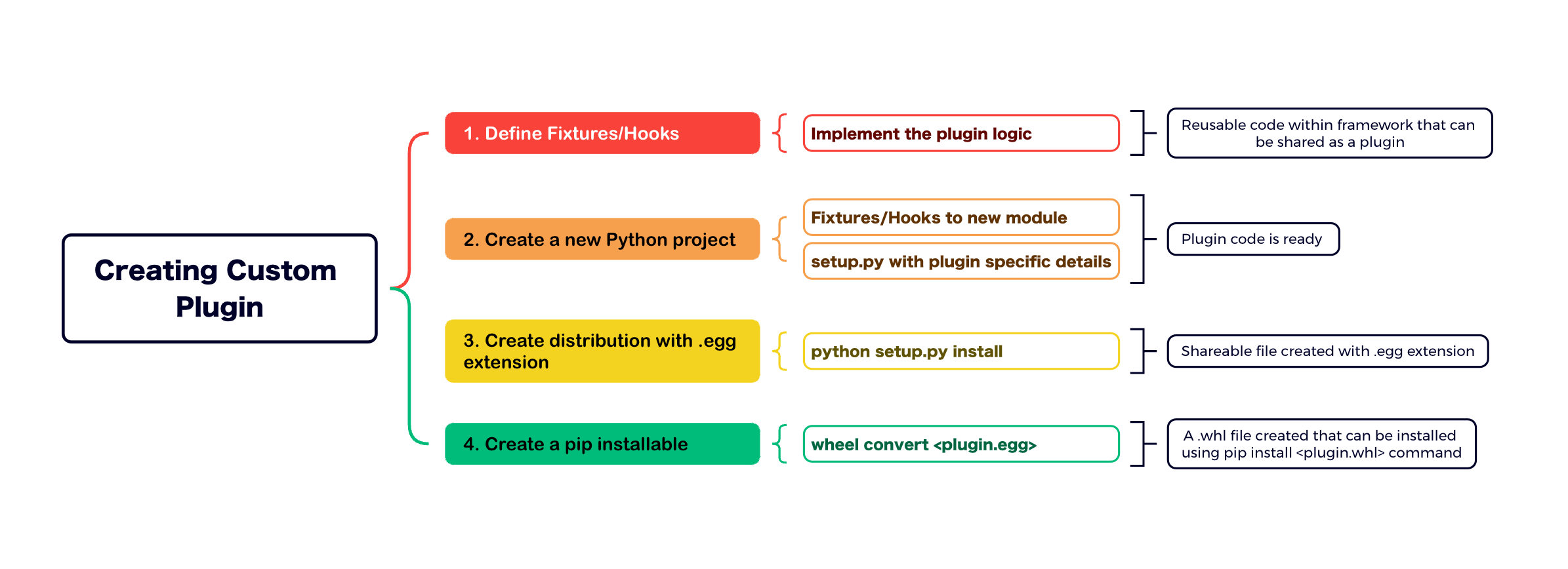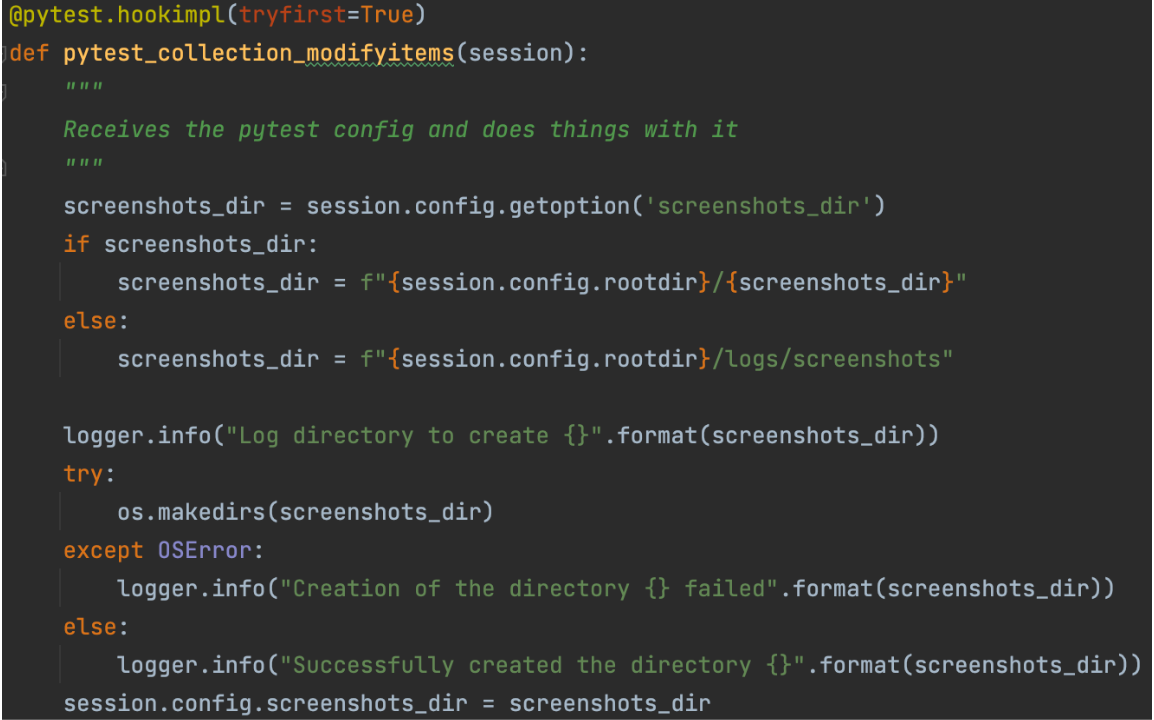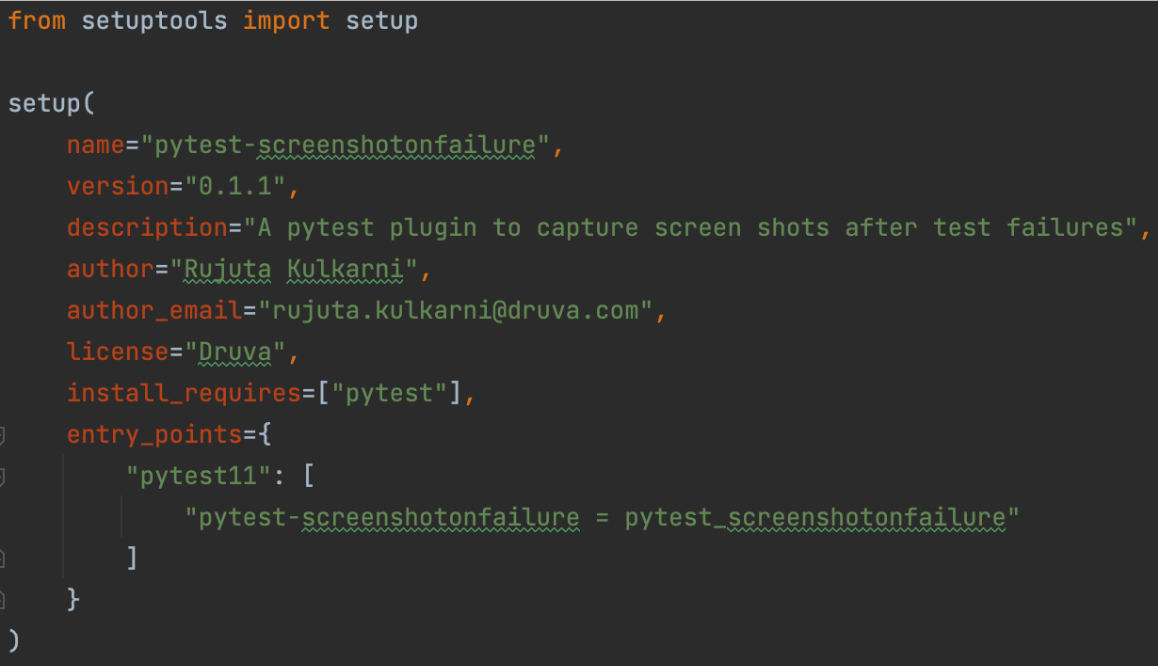Pytest provides a comprehensive set of features for writing and running tests, including test discovery, fixtures for test setup and teardown, parameterized testing, and assertions. However, one of the key strengths of pytest lies in its extensibility through plugins. Plugins can modify the behavior of pytest, add new features, and integrate with external tools. Pytest also allows users to further extend its functionality by creating custom plugins.
At Druva, all teams have their own automation frameworks in place for testing. Each team may independently develop similar functionalities, such as authentication mechanisms, test reporting customization, or integration with external tools like JIRA-XRAY. However, since all the teams have used pytest to build their framework, the problem of code duplication can be addressed by using pytest plugins. This can avoid not only duplication and wasted effort, but can also increase collaboration and standardization across teams.
This blog focuses on how to create our own custom pytest plugin and build a shareable/installable file using a simple example plugin. The created plugin can also be published on PyPI; We will detail this out in another article.
Benefits of Pytest Plugins
Before we start building the plugin, let’s understand some of the key benefits of using plugins in your pytest framework.
Customization: Plugins enable users to tailor pytest to specific project requirements or testing workflows.
Reusability: Once created, plugins can be reused across projects or shared within an organization, promoting code reuse and standardization.
Integration: Plugins enable seamless integration of pytest with other tools or services such as continuous integration (CI) pipelines, code coverage tools, or test reporting systems.
Community Contributions: The pytest ecosystem boasts a rich collection of community-contributed plugins that cover a wide range of functionalities and use cases. Users can leverage these plugins to enhance their testing capabilities without reinventing the wheel.
Creating Custom Plugins
Developing custom plugins for pytest is quite easy. Users can implement hooks to intercept and customize various stages of the testing process, define fixtures to encapsulate reusable setup and teardown logic, or extend pytest's core functionality through custom markers, command-line options, or reporters. You can export these as a plugin for sharing with a broader audience.
Workflow of Plugin Development
The following pictograph gives a visual representation of the steps involved in creating a custom Pytest plugin at a glance.







